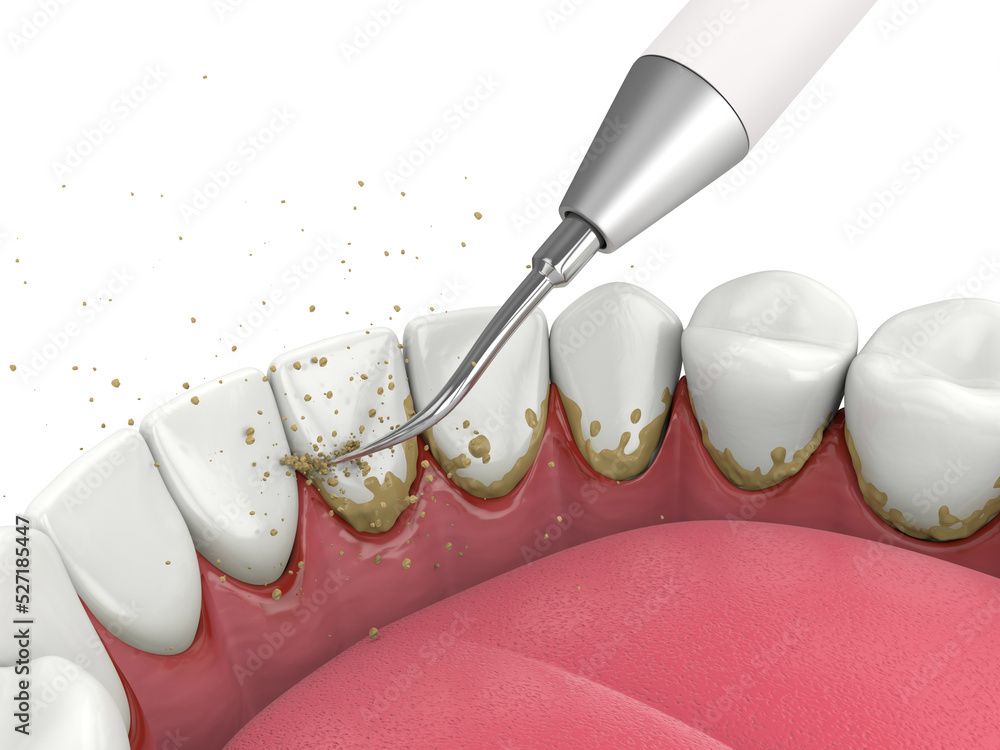What Causes Periodontal Disease?

What Causes Periodontal Disease?
Periodontal disease is a serious gum infection that can cause tooth loss. It is imperative to know what causes periodontal disease, so you can prevent it. Periodontal disease is exclusively caused by the buildup of plaque and tartar on the teeth. Plaque is a sticky film of bacteria that forms on the teeth at the gum line. Tartar is a hardened form of plaque that can only be removed by a dentist.
Causes of Periodontal Disease
Periodontal disease is a common, yet concerning condition. If periodontal disease is not treated, it can progress to periodontitis. Periodontitis is a more severe form of gum disease that can cause the gums to recede, the bones that support the teeth to break down, and teeth to become loose.
What Are the Risk Factors of Gum Disease?
There are a number of factors that can increase your risk of developing periodontal disease, including:
- Plaque Buildup: The more plaque that builds up on your teeth, the more likely you are to develop periodontal disease.
- Smoking & Chewing Tobacco: Smoking and chewing tobacco can damage the gums and make them more susceptible to infection.
- Hormonal Shifts for Females: Women are more likely to develop periodontal disease during pregnancy and menopause.
- Prescription Medications: Some prescription medications, such as those used for cancer and heart disease, can increase your risk of developing periodontal disease.
- Nutritional Deficiencies: A diet that is low in fruits, vegetables, and whole grains can increase your risk of developing periodontal disease.
- Crooked Teeth: Crooked teeth can make it more difficult to clean your teeth thoroughly, which can increase your risk of developing periodontal disease.
- Family History: If you have a family history of periodontal disease, you are more likely to develop it yourself.
Ways to Prevent Periodontal Disease
There are a number of things you can do to help prevent periodontal disease, including:
- Brush your teeth twice a day for two minutes each time
- Floss your teeth once a day
- Use a fluoride toothpaste
- See your dentist for regular cleanings and checkups
- Quit smoking
- Eat a healthy diet
- Manage stress
The Importance of Regular Dental Check-Ups for Gum Disease
Regular dental checkups are essential for maintaining good oral health. During a checkup, your dentist will clean your teeth, check for cavities, and look for any signs of gum disease. If you have periodontal disease, your dentist will recommend treatment options to help you keep your teeth and gums healthy.
Gum Disease Treatment in Point Pleasant, NJ
If you have periodontal disease, Coastal Dental Group in Point Pleasant, NJ can help. We offer a variety of treatment options to help you keep your teeth and gums healthy, including:
- Scaling and root planing: This procedure removes plaque and tartar from the teeth, below the gum line.
- Antibiotics: Antibiotics can be used to kill the bacteria that cause periodontal disease.
- Gum surgery: Gum surgery can be used to remove infected tissue and bone, and to reattach the gums to the teeth.
- Bone grafting: Bone grafting can be used to replace bone that has been lost due to periodontitis.
If you have any questions about periodontal disease, please contact Coastal Dental Group in Point Pleasant, NJ today by visiting us online or calling us at (732) 714-1030. We would be happy to answer your questions and help you develop a plan to keep your teeth and gums healthy.
About the Author
Dr. Joseph Zicchino provides a wide array of cosmetic dentistry services, including Invisalign® Clear Aligners, at his practice in Point Pleasant, NJ. He earned his dental degree from NYU Dental School and established Coastal Dental Group in 2004. For more information call (732) 714-1030 or to schedule an appointment!
About the Author
Dr. Joseph Zicchino provides a wide array of cosmetic dentistry services, including Invisalign® Clear Aligners, at his practice in Point Pleasant, NJ. He earned his dental degree from NYU Dental School and established Coastal Dental Group in 2004. For more information call (732) 714-1030 or to schedule an appointment!
